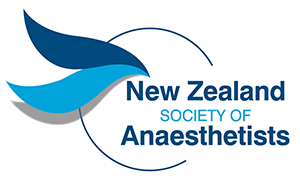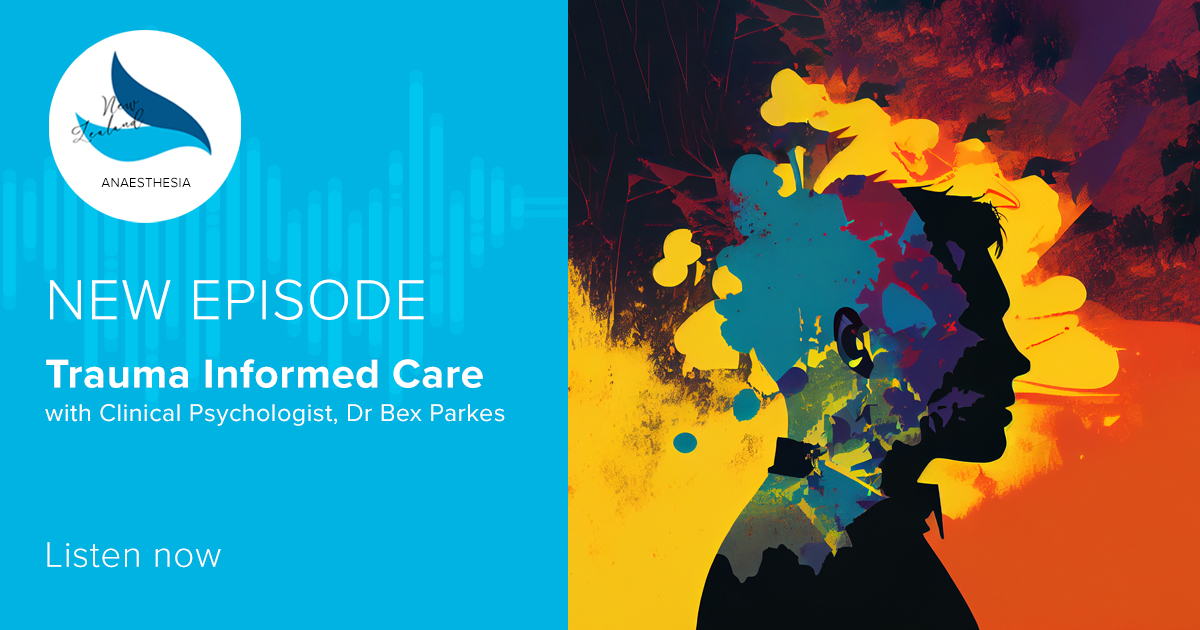Mental ill health – how do we better support our colleagues?
I’m looking out over the Pahia coastline writing this blog. I have been at the Cultural and Leadership Hui organised by ANZCA NZNC this weekend in Waitangi and commend the organising committee for putting together a stimulating, thought provoking, emotive and challenging meeting. It has provided a hard push to turn the lens on myself and look at my own biases and judgements, which influence my behaviours every day. There are an abundance of topics whirling in my head – cultural safety and competence, bias, inequity, racism, how can we improve the numbers of Maori and Pasifika trainees in anaesthesisa. ..however for today I want to focus on our wellbeing. There were several excellent presentations focussing on this.
We have been spared, so far, the overwhelming numbers of COVID-19 cases that many of our overseas peers are experiencing. However, we are not immune to the psychological impacts of the pandemic – great uncertainty remains which has led to long-term, low level stress and of course worry about when our next outbreak will occur. This is ever more real as we begin a week of increased lock down levels again. Kia Kaha Auckland.
Before the pandemic began we were already seeing reports of high rates of burnout amongst SMOs (here are links to the ASMS report and survey)
DHBs are struggling with workload for a range of reasons including inadequate infrastructure and staffing resources, with outdated funding models etc. We already know about the high rates of depression, anxiety and substance abuse disorder in our specialty. I worry that the impact of the pandemic will worsen burnout and mental ill health on an already stressed health service.
Dr Kate Harding gave a moving talk at the hui (one of many) about the impact of her husband Richard taking his life in October 2017. They had moved from the UK to Whangarei, a move that was delayed by a complaint about Richard to the General Medical Council. While the complaint was dismissed, it took a tremendous toll on all involved. Kate spoke candidly about Richard’s death in a bid to reduce stigma and stimulate discussion so that we can hopefully be more open in our approach to mental ill health – here is a blog she wrote in the Guardian.
She shared the intense guilt she still feels that she did not spot the signals of how severely ill Richard was, and this was echoed by those in the room. Dr Jo Coates (HOD Whangarei) asked all in the room to put their hand up if they had NOT been affected by a suicide in their department. Not one hand went up. Alarming, but not surprising. The impact of a suicide is far reaching, but how do you recognise the signals? How do you offer support to a struggling colleague, especially when their struggles may be well concealed?
We need to be open in our discussions, to be kind and supportive to those who are struggling, and to remind ourselves that it is okay not to be okay. We need to break down the stigma of mental illness and substance use disorder – they are not a moral weakness, nor due to a lack of resilience, but illnesses that need treatment and suppport. Burnout is an occupational hazard, not an individual flaw. We need to create departments, hospitals and a profession where it is safe to talk about these issues, without judgement. I realise it is bigger than anaesthesia, but given our specialty is disproportionately represented in suicide and addiction stats we can’t rely on someone else to do it for us.
The challenge is how we do this at ground level, how do we look after each other? Does your department have a wellbeing lead? Does you department undertake activities to assess the level of stress or distress in your team? As someone in a management role within a department, how do we get above the daily grind of work to keep an eye on our team, to take time out to focus more on the health and wellbeing of those around us? And importantly how do I put aside my biases and judgements, and make room for the empathy and compassion we should be showing one another?
One thing is for sure, yoga and meditation are not going to cut it! We need connected departments, where staff feel valued. Small things can make a big difference to the day-to-day experience in the work place. We would all love extra FTE to reduce the work burden (a recent ASMS survey suggested the one thing most SMOs felt would help in their workplace was additional FTE), but in the financially challenged system we work in, what can we do when that is not possible? We have recently conducted a survey of SMOs in our department, and the challenge will be to put some of that feedback into action and be accountable for moving in the right direction.
Going back to resilience, this is a valuable skill that can be learned and developed to help us deal with the ups and downs life throws our way. Dr Lisa Hone presented at the NZSA forum in Christchurch a few years ago. She is a resilience coach and worked with the US army, returning to Christchurch before the earthquakes. She thought the quakes were the time to put her training into action, but five years ago she lost her daughter in a car crash, along with her daughter’s best friend and mother. Her talk was honest and raw, and there was barely a dry eye in the room. Lisa has just ranked in the top 20 Ted X talks for the TED talk she delivered with her key messages on resilience five years down the line. Listen to the talk here
For those who want the 30 second version, her three strategies for resilience are: 1) Recognising that adversity does not discriminate and that most people experience it. Resilient people know we all suffer and that it’s part of every human existence. When it happens to you rather than asking ‘why me?’ ask ‘why not me?’2) Resilient people pragmatically assess situations and focus on the things they can change and somehow accept the things they cannot. Find what to be grateful for (benefit finding). Tune in to what is good, it is human nature to focus on the negative (part of our survival response).3) Always ask yourself ‘is this behaviour harming, or helping me?’
Clearly these strategies do not make the bad times good, or easy, but they may help to get you through. Like any skill, it needs to be practised regularly.
So, what role does the NZSA have to play in promoting wellbeing and addressing the issues I have raised? Over the last few years, we have increased our communications on wellbeing with articles in our magazine and highlighting resources for members to access. We held a mentor course in 2019 and a year before that a forum focused on wellbeing themes.
The college has set up a welfare advocates network, the ASA has developed the Long Lives Healthy Workplaces toolkit for anaesthesia departments, and the Medical Protection Society has a wealth of resources on their wellbeing webpage. The NZSA does not want to offer a token effort, or half-heartedly reproduce efforts of sister organisations. When it comes to wellbeing, what would you like the NZSA to be doing for New Zealand Anaesthetists?
Your thoughts are welcome, please email president@anaesthesia.nz.
Dr Sheila HartMarch 2021


